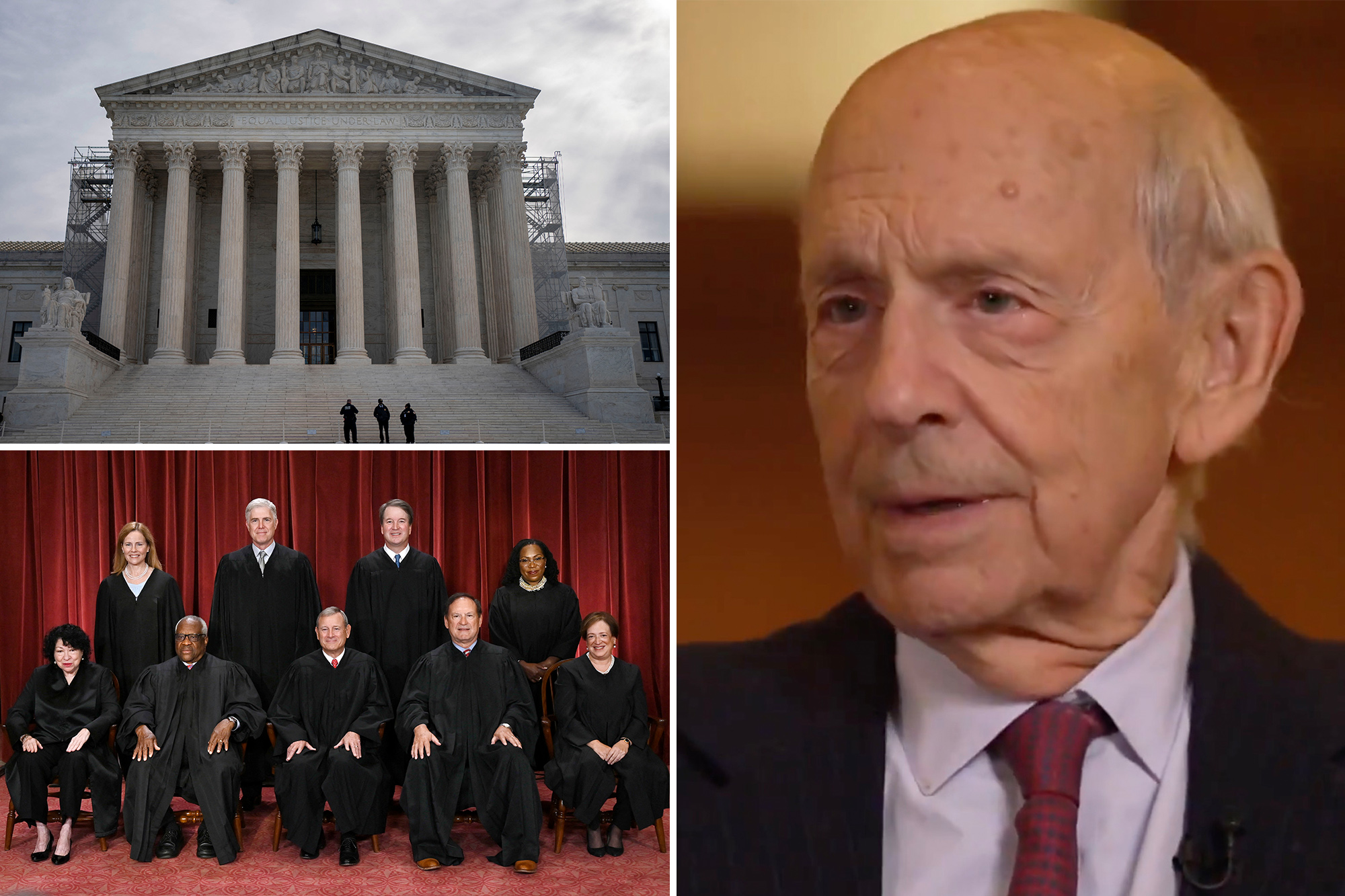
Former Supreme Court Justice Stephen Breyer signaled support for term limits on the high court provided that those terms are lengthy.
“I don’t think that’s harmful,” Breyer, 85, told NBC’s “Meet the Press” Sunday when asked about age limits.
He then pivoted to the concept of potential term limits, saying, “They’d have to be long. Why long? Because I don’t think you want someone who’s appointed to the Supreme Court to be thinking about his next job.”
Breyer suggested that if there had been term limits, it could’ve helped him avoid going “through difficult decisions” about timing for his retirement.
After President Joe Biden took office in 2021, Breyer became subject to a pressure campaign from progressives who wanted him to step down so that Democrats could ensure liberals have three seats.
They were haunted by the death of former Justice Ruth Bader Ginsburg at 87 in 2020 which paved the way for Justice Amy Coney Barrett’s ascension to the high court, giving conservatives a sixth seat.
A similar situation is unfolding right now with Justice Sonia Sotomayor, 69, who has reportedly traveled with a medic. Some progressive voices are urging her to step down while Democrats still have the White House and Senate.
Ultimately, Breyer, who was appointed by former President Bill Clinton in 1994, stepped down after the landmark Dobbs v. Jackson Women’s Health Organization in 2022 and was succeeded by Justice Ketanji Brown Jackson.
Breyer strongly opposed the Supreme Court’s decision to overturn Roe v. Wade, which enshrined a national right to abortion but refrained from going beyond what he’s already said on the contentious topic.
“We thought there would be a lot of issues coming to the courts — coming out of the decision to overrule Roe versus Wade,” Breyer recounted. “We felt strongly on that case.”
Prior to the landmark Dobbs decision, a draft of it was reported by Politico sending shockwaves throughout the nation.
“You try to remain as calm, reasonable, and serious as possible,” Breyer said when asked if he was angry about the leak. “I think it was unfortunate.”
Breyer teased that he has “theories” on the leaker, but declined to elaborate other than saying, “I’d be amazed if it was a judge.”
Chief Justice John Roberts had pushed for a more limited decision to allow states to ban abortion procedures after 15 weeks of gestation, but others on his right flank went further and scrapped Roe altogether.
“I usually hoped for compromise,” Breyer recounted.
Breyer, who served through five presidential administrations, is set to release a new book, “Reading the Constitution: Why I Chose Pragmatism, Not Textualism” which takes aim at the judicial philosophy favored by conservatives.
Textualism is the judicial philosophy that homes in on the plain text of the law. Originalism is a somewhat similar philosophy but takes into account what the authors intended.
Breyer believes that the Constitution stipulates a set of principles that should be interpreted by later generations.
“So it’s very attractive. You say that [with] textualism all you have to do is read this. Fabulous, you’ve got the answer,” Breyer said.
“It’s simple,” he said. “It sounds good, but it doesn’t work very well in my opinion.”














